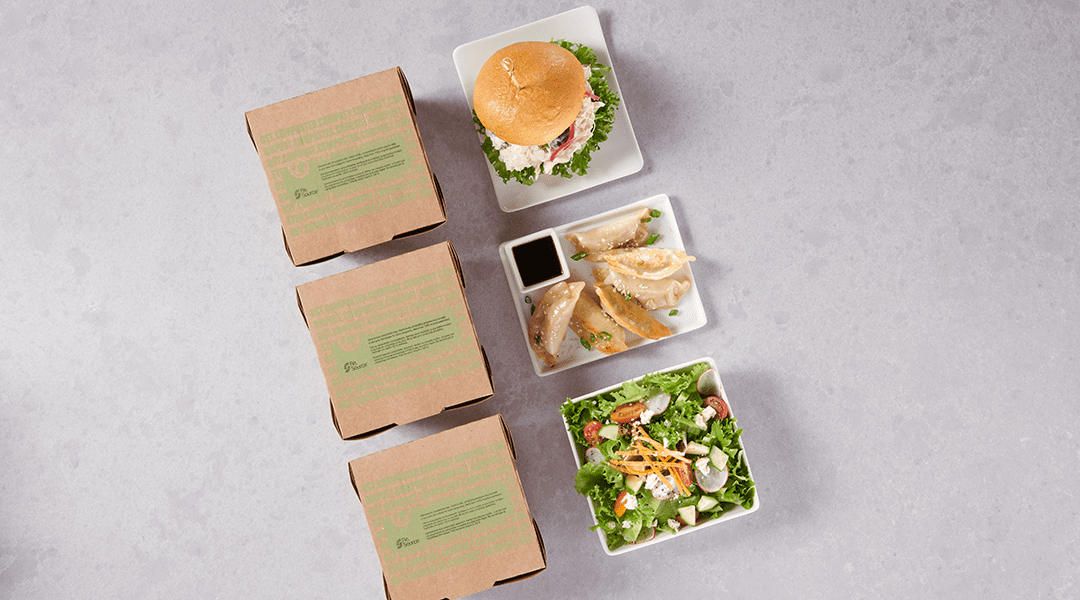Operators looking for new ways to grow may consider franchising — granting other business owners the right to “clone” your operation in exchange for a fee and, typically, ongoing royalties. Gordon Food Service Commercial Segment Manager Doug Owens interviews representatives from two franchise companies so they can share the basics of this business model: Mark Siebert, CEO of iFranchise Group, and Steve Vandegrift, President of Fransource International.
Owens: Why should an operator consider franchising?
Siebert: It enables you to grow your business more quickly using someone else’s money, people and time. You earn capital from individual franchise owners, who are more motivated than employees to put in the time, effort and sacrifice to make the business a success.
Vandegrift: It’s a proven way to rapidly grow using other people’s money while maintaining the quality standards that made you a success in the first place.
Owens: Are there different types of franchising to consider?
Siebert: There are four types: 1) Traditional, where a business sells individual franchises; 2) Area Development Strategy, when a business sells rights to a certain geographic territory; 3) Area Representation, where you “sell” a territory to a representative who seeks out and supports franchisees; and 4) Master Franchise, which is generally used to expand internationally. The first two are most common in the restaurant industry.
Owens: What are common misconceptions about franchising?
Siebert: One is that it’s ripe with lawsuits. While there are some high-profile legal cases out there, the truth is that litigation is not an anticipated result of a well-constructed franchise contract. The key is to find the right attorney to work with.
Vandegrift: People misunderstand the level of control a franchisor can exert. Franchisors can maintain control over just about anything, as long as it’s spelled out in the franchise agreement. The reality is that most franchisees want things laid out for them—otherwise, they’d start a business from scratch.
Owens: What can operators do in the exploratory phase to set themselves up for success?
Siebert: The odds of success boil down to three basic elements: 1) Have you built an operation that will attract interest from potential franchisees?; 2) Can you duplicate your system of operation on a larger scale?; and 3) Can you get an adequate return on the investment you’ll put into developing a franchise offering?
Vandegrift: Operators should conduct a full and honest evaluation of their business—everything from the concept to the advertising and marketing to the sources of supply—to determine whether it’s ready and appropriate for franchising.
Owens: What are the biggest risks to franchising?
Siebert: Brand degradation is a risk. You have to make sure franchisees are operating to the highest standard of quality because it all reflects on you.
Vandegrift: Not engaging with competent franchise attorneys and professionals to help you at the outset.
Owens: What are the biggest mistakes operators make when considering franchising?
Siebert: Operators can spend the time and money to create a great program and then undercut it by handing out a franchise to the first warm body with a check. You have to be selective about finding the right franchisees.
Vandegrift: Don’t underestimate the sophistication of today’s franchise buyer. They’re looking at the long-term support they’ll get from you after they’ve purchased the franchise.
Owens: What should operators look for in a franchising “expert” to help them in the exploratory phase and beyond?
Vandegrift: Experience and expertise—look for someone who has demonstrated an understanding of what it takes to make a successful company a successful franchisor.
Owens: How does an operator conduct a cost/return analysis?
Siebert: That’s difficult for an operator to do on their own unless they’ve had franchising experience. It depends on the type of franchising you implement and a whole lot of other variables. But franchising can certainly be a very profitable enterprise.
Owens: What are the appropriate fees for launching a franchising operation?
Vandegrift: Fees vary based on your operation and how aggressively you want to grow. We typically recommend a budget of no less than $100,000–$150,000.
Owens: What basics need to be in place before considering franchising?
Siebert: You need to have a successful unit up and running and making money. Beyond that, you should have a clear grasp on your goals for growth. Only consider franchising if you can’t reach those goals with your own restaurant.
Vandegrift: Systemization is critical—you need systems that a franchisor will be able to duplicate. Not just your recipes, but every aspect of your business.
Interested in Franchising?
Ask your Sales Representative about the third-party franchising resources that are available.
Disclaimer: This Q&A session is intended to help you evaluate franchising as a growth opportunity. Gordon Food Service makes no claims or recommendations—only you can decide if franchising is right for you and your operation.




























